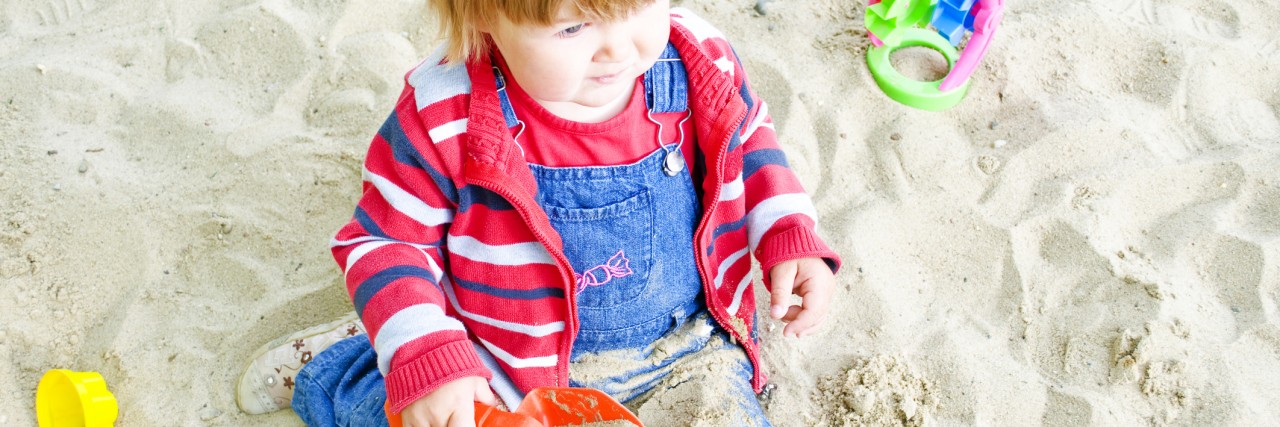Muffled giggles and shouts for Dada from behind my daughter’s closed door signal the end of nap time. I dump the load of laundry I just got out of the dryer on my unmade bed to head into her room. I started this day two steps behind, and I haven’t managed to catch up. I push that thought to the side and open the door wide while singing, “Good afternoon, Everly!”
And then I notice she is proudly standing in her crib in her birthday suit. I fluctuate between pride at the life skill she’s mastered — she was wearing a one-piece jumper and a diaper with snaps — and annoyance at the mess I now have to clean. I opt for something in between and mutter, “How’d you manage to undo those snaps?” through clenched teeth while I carry her into the bathroom to rinse her off.
Clean and fully dressed once again, I set her down with a kiss to play while I clean up. She is gesturing to me and yelling, but it isn’t sign language and none of the yelling contains actual words. Her frustration mounts as I ask her questions over my shoulder as I work, playing 50 questions to figure out what she needs. I show her picture cards, I use signs. I finish putting her bedding in the washer and scoop her up to head downstairs to continue the guessing. I show her the fridge and ask if she wants a snack and hear an articulated no from her. I pull out the milk, and she pushes it away. I frantically sign and ask all the usual activities and toys. Books, blocks, music, babies, and coloring are all rejected. Her frustration grows into a full on meltdown. I pick her back up to try to soothe her. Why can’t it be easy for her? For me? This struggle with language and communication has never been more hindering. As I’m crying and turning on music and gently swaying, she calms down a bit and carefully takes my face in her two tiny hands and looks desperately into my eyes. I search them, trying to understand. Her baby sister wakes up as my frustrated girl struggles out of my arms.
I go upstairs and pick up my youngest and hear banging downstairs. As I rush into the room, there is Everly, standing by the back door banging on it and pointing. Her big sister is playing in the sandbox and comes over to the door.
“Do you want to play outside?” I ask. Everly nods and signs play and outside. Two signs she knows and uses often. Was this the request that caused our lack of communication? Did she give up on what she was trying to say and resign herself to doing something else? Did she sense my annoyance while cleaning up, throwing off her confidence and ability to communicate her wishes?
Sun hat on, I open the door for her to join her sister. She happily toddles off into the yard, getting a boost from her big sister into the sandbox. I sit on the patio nursing my youngest, watching my two oldest play, running our failed attempts at communicating through my head.
Am I doing enough speech interventions at home? Should I add more days or find new communication apps on my phone for practice? Should I have stepped away and not played 50 questions trying to figure it out? Would she have found her words faster if I had stopped cleaning and fully focused on her?
I walk over and put their baby sister in the sandbox with them. Through the squeals and the hugs Everly says, “baby” while manipulating her baby sister’s hands into the correlating sign. Next, “paaaaayyy” she says, while moving her sisters hands to show her. They clap together, and my oldest comes over to join.
I take a step back and focus on the joy contained in that box filled with sand. They play together, and I push down the mom guilt that had been creeping to the surface.
I am enough.
Image via Thinkstock.

